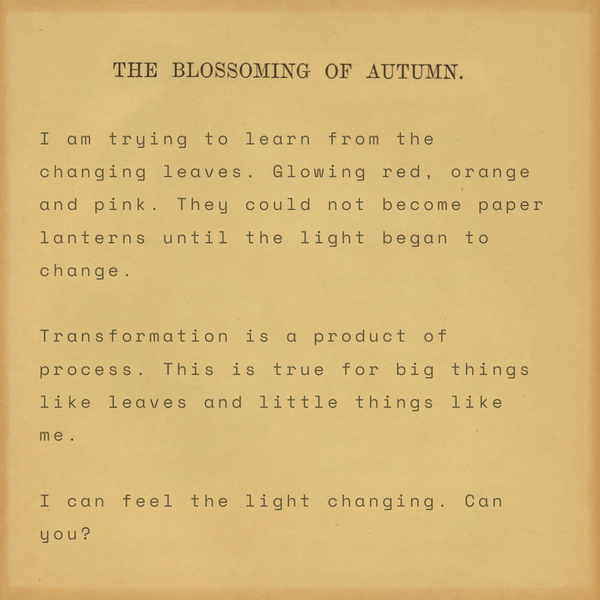Parenting Is Hard. Celebrity Cameos Can Help.
During a pandemic, it takes a celebrity village to raise a child

Originally published by Human Parts
My 9-year-old daughter is having a hard time. It’s the kind of hard time most kids have at her age, made worse by the pandemic. Sometimes people call her quirky. This makes her nervous. She wants to be normal. When I tell her there’s no such thing as “normal” she scoffs. She just wants to unobtrusively line up with the girlhood formulated by Disney tween sitcoms and the common consent of an apathetic society. When she’s at school, she bends her mind and spirit in half, frustrated that each corner of herself doesn’t meet the others. She’s pretending to no longer like make-believe; she’s grown quieter, looking to know others before she knows herself. This is upsetting, but normal. When she’s at home we try to help her roll herself out, smooth away the creases she’s made, help her learn to love her unique outline.
In the past when one of our other children dealt with similar hardships, we found environments where they felt more at ease as themself. For this kid, that would mean songwriting workshops, a children’s theater company, or maybe some Studio Ghibli art classes. She’s lucky to be attending in-person school during the pandemic, but there are no after-school rooms full of accepting, singing, acting, Totoro-obsessed kids right now. There’s just us. It’s not enough. We need reinforcement. I asked my daughter to make a list of people who were happy being themselves, even if they don’t fit in. Kim-Joy was at the top of her list.
Kim-Joy was a baker on The Great British Bake Off. She made fox cakes and chocolate spheres full of choux space turtles. She wore vintage prints and had colorful hair. She spent the competition being unapologetically herself. My kids loved her. They still do. They check in on her Instagram, where she shares vegan tangzhong ox buns, purrmaid macarons, and space-bunny cakes. They watch her YouTube channel, taking notes on how to make pandaleines and bear biscuits. They love her baking but mostly, they adore her. She is accessible and accepting of herself. Kim-Joy is outspoken about her childhood social anxiety. She actively works to empower disadvantaged women. Her work means something to my daughters. After they engage with Kim-Joy’s spaces they inhabit their own spaces more authentically.
There is only one online space of Kim-Joy’s they haven’t ventured into yet — Cameo. Cameo is an app that allows users to request personalized videos from celebrities. The price tags per celebrity vary but most seem to hover around the $50 range. It’s mostly used for birthdays, pep talks, and congratulations. Some people use it for breakups — Sugar Ray’s Mark Mcgrath is a fan favorite for this one. Cameo’s growth has been accelerated by the pandemic. Users who can’t attend life events in person are sending Cameos featuring slightly famous celebrities in their stead.
The app is fun for the fans (unless they’re being broken up with) and profitable for celebrities. Brian Baumgartner, who played Kevin on The Office, made $1 million on Cameo last year. His videos are earnest and engaging. In one, he tells a woman with cancer that her best friend loves her and that he’s rooting for her. Top of the list Kim-Joy is on Cameo too. She’ll make a video for you or a friend for $37.99. Maybe Cameo should feel weird. It doesn’t. After following stars on social media for years, we feel like we know them. Letting them know us seems like the next step.
“My mom says we can’t have TikTok because the algorithm is discriminatory.” She’s annoyed and I’m right.
The next step in social media isn’t one I let my children take. They’re not even allowed to have smartphones. They have to borrow mine to check in on Kim-Joy’s bakes. My kids are sitting out social media while internet culture figures out its kid consent problem. Consent isn’t the only issue. I recently heard my daughter sigh to a friend, “My mom says we can’t have TikTok because the algorithm is discriminatory.” She’s annoyed and I’m right. Algorithms aren’t neutral. Many, like TikTok’s, are built with an intentional bias against those the creators deem less desirable. Leaked memos show TikTok discriminates against users who are obese, poor, disabled, and “senior people with too many wrinkles.” That’s a game my kids aren’t allowed to play.
But Cameo? Cameo doesn’t really feel like social media. It feels like intentional connection. Celebrity connection. Sending a request on Cameo is like writing to your favorite actor as a kid. Instead of checking the mailbox for a response, you wait for an app notification. My children have lived through a year of Zoom school, Zoom funerals, and Zoom hangouts. Cameo feels as personal as anything else they have been able to engage in. Kim-Joy is about as real to my kids as family they haven’t been able to see for a year. During a pandemic it takes a celebrity village to raise a child, maybe.
I didn’t happen upon Kim-Joy on Cameo because an algorithm pushed her to me, I found her because I was looking for her. I wasn’t the only one. Her profile features reviews from other people who have requested and received videos. All her reviews are five stars. She told one woman how to bake a mini smash cake for her son’s first birthday. The cake was a success and the reviewer wished Kim-Joy luck on getting settled into her new place. One review says, “it was great meeting you again.” Another reviewer checks back in after a video made for a person who had to go to the ER. The recipient ending up being all right and the video made her even better.
Requesting a video is simple. You can select what type you want: Birthday, Get advice, Roast, Ask a question. I chose Pep Talk. Then you’ve got 250 characters and a 20-second video to describe your request. I wrote down a few things my kid loves and said she was having trouble with wanting to fit in. In the video, I let Kim-Joy know how to pronounce my daughter’s name and told her how much she loved her. I whispered my message in the dark. My daughter was asleep in the next room and I didn’t want her to hear me ask for help. Before I submitted the request, I uploaded a photo of my daughter. I hoped Kim-Joy — this stranger who bakes in color — could see my daughter and help her see herself. Then I waited. Cameo celebrities have up to seven days to process a request. Kim-Joy sent my daughter her message in two.
When it was over, she whispered, “Kim-Joy knew how to say my name!”
Her video was as lovely as one of her bakes. She pronounced my child’s name correctly and told her it was beautiful. She spent the rest of the video reinforcing that different is good. Kim-Joy said she loved Studio Ghibli too. She asked my daughter if she realized all the characters in those films are unique, none of them need to be the same. It was a video rich in empathy. “I wanted to fit in at school too,” she said. And full of grace, “You’ll figure it out in time.” At the end she said, “I think you’re amazing.” When I watched it, I cried.
My daughter didn’t cry when she watched it. She just sat still, awed. When it was over, she whispered, “Kim-Joy knew how to say my name!” Our work with her is ongoing. Equipped with Kim-Joy’s message, it’s a work my daughter is happier to engage in. She asks to borrow my phone every couple of days so she can rewatch it. I left a five-star review on Kim-Joy’s profile. When you leave a review for your Cameo celebrity, you can leave a tip. How much do you tip someone for helping your child return to herself? On Cameo, the highest amount is $19.99. I chose that.
We’re not the only ones finding value in Cameo. According to Bloomberg, Cameo “is in discussions to raise funds at a valuation of about $1 billion.” I don’t know about tech valuations. I do know that as the pandemic drags on, Cameo’s value is increasing in our home. My oldest daughter is turning 12 this month. We can’t have a party. She is lonely and disconnected. The pandemic has now taken up 1/12th of her life. She’s at a loss. And so am I. It’s time to request another video. I feel like Kim-Joy will know just what to say.




